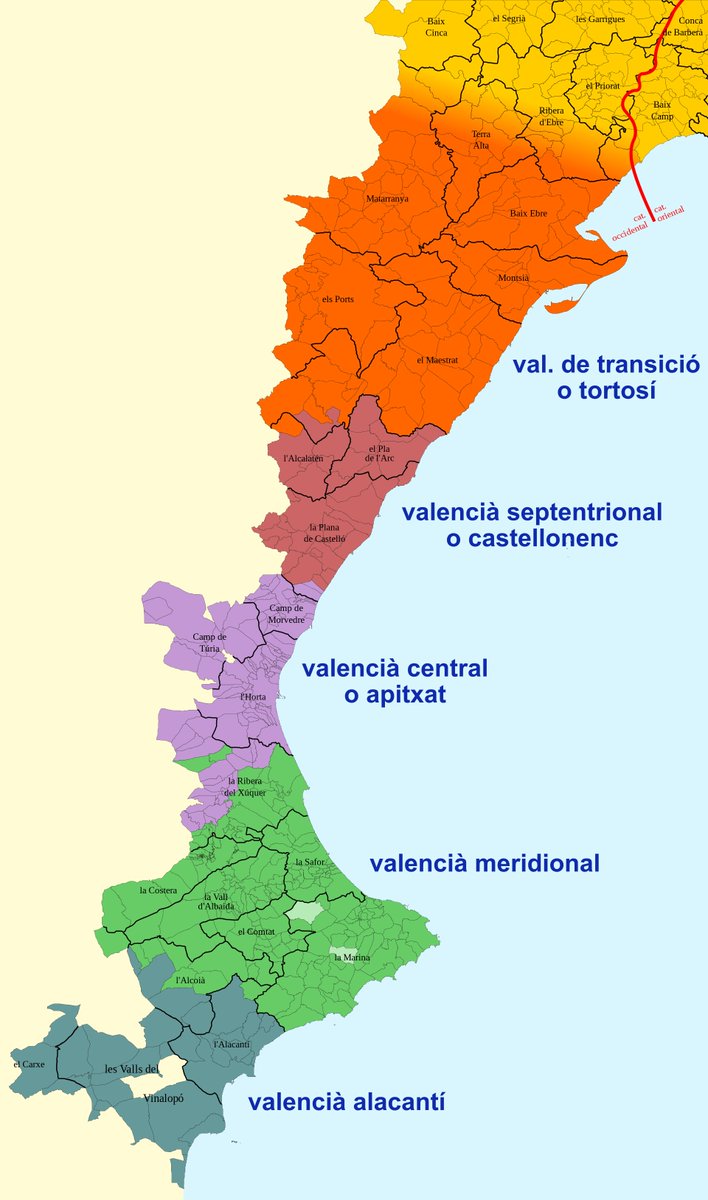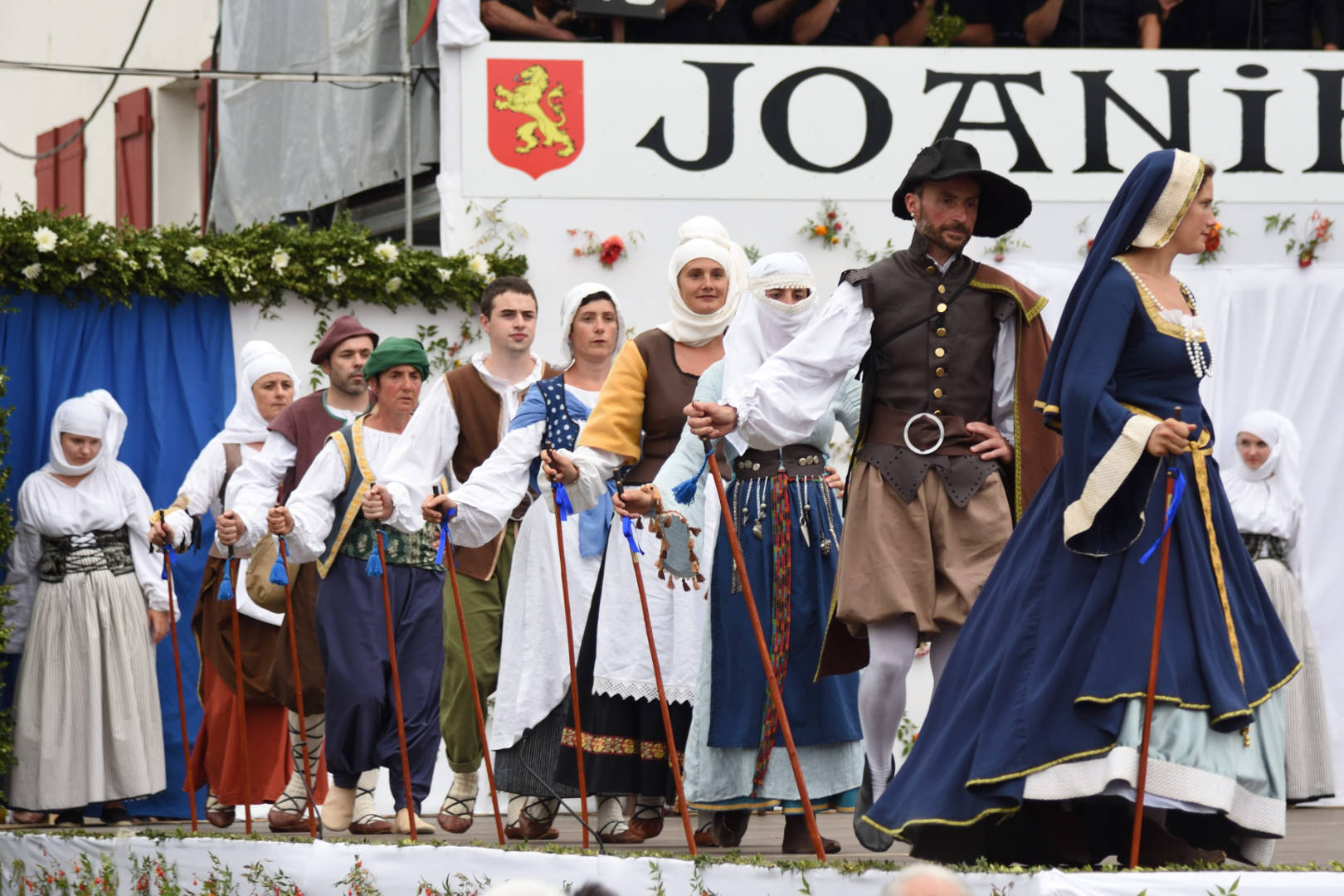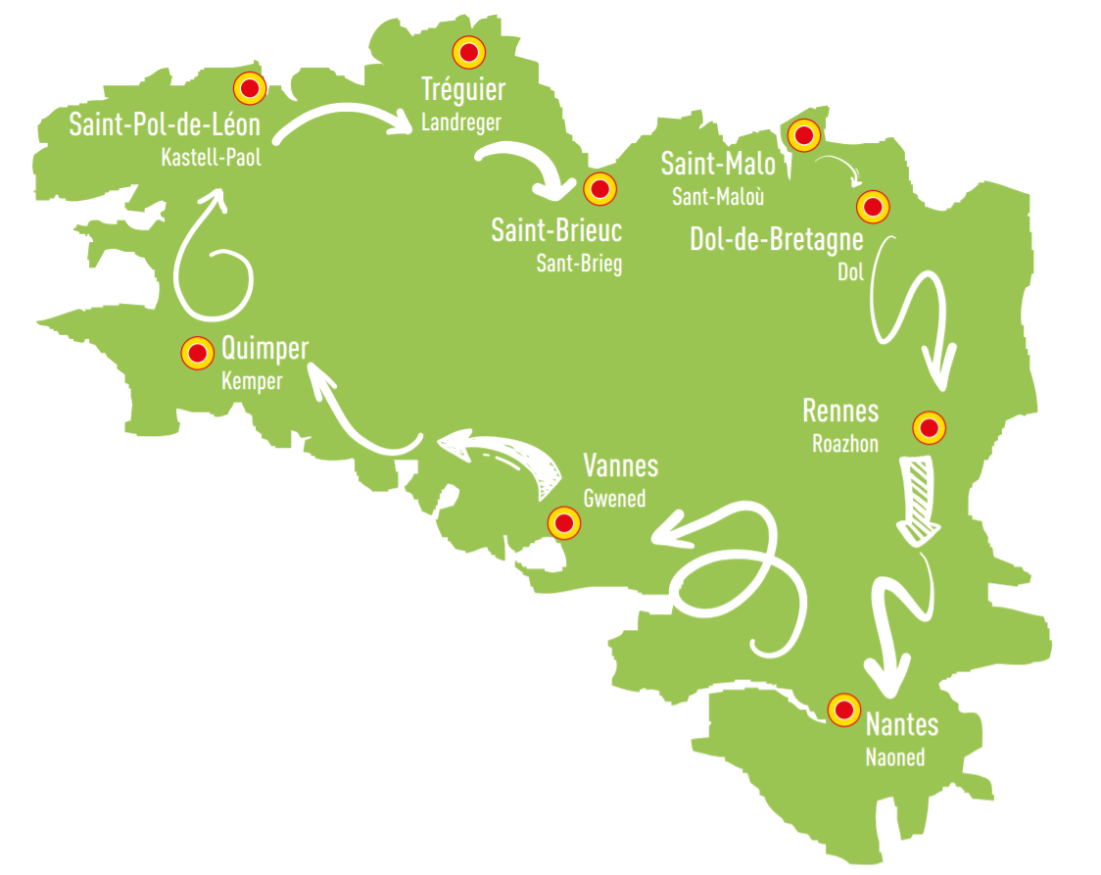I went to Baiona in the morning, taking a train from Donostia to Hendaia, and from there I took a SCNF train to Baiona.
I fell asleep on the train to Hendaia and when I woke up, still groggy, I had a bizarre experience. I stepped out of the Basque metro station, walked 50m to the SCNF station and asked in Basque to the young woman behind the information counter (not the ticket counter, just the information point) for some info, whether I could use my student card to get discounts on tickets in the French state.
Incomprehension and puzzlement on her end. And from my end: why didn't she understand Basque? Then I realised, ah, I'm in 'France' now.
Hendaia, the Basque city is right alongside the Spanish-French border. A third of its inhabitants are from the Spanish state, many of whom are Basque themselves. I would probably have gotten service in Spanish if I had bothered to use it. But not Basque, as it turns out.
Here is what the figures were for Hendaia a decade ago:
Euskararen erabilera: % 0,43 (2011)
Euskaldunak: % 8,73 (2010)
So use of Basque: 0.43%
Basque speakers: 8.73%
That's sad. Now don't get me wrong, Irun just across the border in the Spanish state has miserable numbers too, although it's definitely better than Hendaia's:
Euskararen erabilera: % 8,5 (2011)
Euskaldunak: % 35,85 (2010)
The difference between Spanish dominated Basque cities and French dominated Basque cities however, is that in the South Basque Country where Basque is an official language, at least in official circumstances and in jobs where contact with the public is necessary, I'm
guaranteed to be able to use Basque and be understood, or be attended to in Basque in return.
I've never once had a situation where I've not been able to buy a ticket or ask for information at an information point, in Basque.
Later, I went to the Basque Museum in Baiona, at 10 am in the morning. I was cruelly disappointed to find that there too, none of the people working
that shift, at least, spoke Basque. The people at the reception and the tour guides all spoke (only) French.
However, I did find there Frank Dolosor, Basque journalist for EITB in the North Basque Country doing a report on the temporary exposition. He speaks Basque, of course. The cameraman in his crew didn't however.
It's strange to see in Baiona, Basque flags and symbols and Basque words in the windows of shops, and to see it written in signs, on the matriculation plates...but nowhere did I hear Basque. If there's a café with a Basque
name, I should be able to enter and use Basque to get my coffee no? Or is Basque just a marketing tool? Is Basque meant for showing off and French for real talk?
It reminds me of what happens in Perpinyà where Catalan flags and symbols abound, more than in Catalonia itself...but you can forget about Catalan being spoken in the streets, save for the Gitanos. I feel it is a kind of compensation, this holding onto the superficial trappings of an identity whilst the core is taken over by a coockoo language.
From Baiona I walked to the town of Uztaritze. Getting into Lapurdi proper now. Here are the figures for ten years ago for Uztaritze:
Euskaldunak
% 13,3 (2010)
Euskararen erabilera
% 1,02 (2011)
I went to the udaletxea (mairie) to get my pilgrim's credential stamped. As always I asked if there was anyone who could attend me in Basque. There was no one.
This makes
no sense. Why do you have signs in Basque, including the very name of the town hall itself, if there's no one in administration who can speak Basque? It's illegal in France to make Basque a requirement for a public service job, but until that restriction is overthrown (when pigs fly?) I can think of several alternatives, such as offering free or subsided courses so that public servants can take advantage and learn Basque.
I was getting progressively more dejected. Was I going to walk through Lapurdi, without hearing or speaking any Basque in a normal setting? Coming from a place where Basque is a real public spoken language to where Basque is hidden is a real shock.
Then I arrived at Zuraide. And then things changed. But nothing predicted that I'd be able to use Basque in this town of 1400 people. The data is still quite negative:
Euskaldunak
% 12,98 (2010)
Euskararen erabilera
% 0,97 (2011)
A bit more Basque speakers, nearly 13% but the use is still miserably low.
I went to the town frontoia where some men my age (20s-30s) were playing pelota. Out of perhaps 8 men, 2 were Basque speakers.
As one of them explained to me, in Zuraide there is no ikastola, but there is one in Sanpere, the town famous for its festival where the proceeds go directly to funding the ikastolak in the North Basque Country. He went there to do his education in Basque.
Then I went to the town church in order to talk to the priest. He wasn't there but the choir organiser came in, to our mutual surprise. The choir was going to rehearse, many of whom come from this town itself. I asked him if I could sleep in the church (all the albuergues are closed, I knew this in advance so I sleep where I can), to which he said, well I'll ask the priest. After a short call, he gave me permission to sleep upstairs. And invited me to Mass tomorrow morning. Alex, the choir leader, was born here and speaks the Basque from this town. Slowly the choir members filtered in. I talked to two elderly members at the entrance chatting away, I told them rehearsal was about to start soon, to their bemusement. Ah, you speak Basque? I'm used to that.
I sat down at the back and listened to 45 minutes of beautiful hymns and devotional songs, all in classical Lapurdi Basque (one of the first and most important literary dialects of Basque, which had a significant influence on the later standard Basque). The hymnal is a thing of beauty, I need to take a picture and put it up here.
The average age of the choir was around 60-70s, and although I didn't get around to talking to all of them, I did talk to a few men and women who came up to me after and they spoke to me in Basque, which I was really happy about. After all, in a choir when you're singing, you don't necessarily need to know the language. C.f. choirs that sing in Latin.
One of them was a lady who told me that she had done the same Camino that I was doing...17 years ago. 17 years ago, the services, roads and everything were non existent. Heck, this entire Camino has been practically forgotten up until relatively recently. What she did, takes guts. The Camino I'm doing is the Baztan Camino that crosses from Lapurdi into the Baztan Valley in Nafarroa Garaia. I've been to the Baztan Valley once.
Here is where I'm sleeping. In the upstairs part of the church, there's a whole shelf of Basque hymns. I'm taking pictures of the hymns, not sure I'll have this opportunity again. But it's best if its sung of course.








